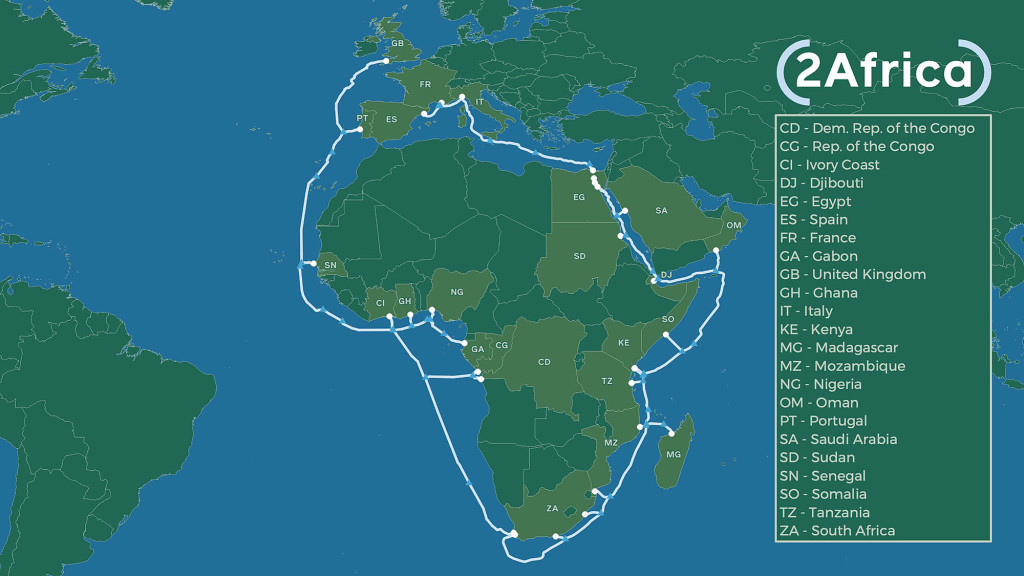Facebook’s new undersea web cable will almost triple Africa’s internet capacity
New 37,000km cable will skirt the perimeter of the African continent

Facebook is building a colossal undersea web cable that will nearly triple Africa’s internet capacity, the firm has announced.
Constructed in partnership with a range of global telecoms firms - including China Mobile, MTN, Orange and Vodafone - the 2Africa cable will run 37,000 kilometers around the continent’s perimeter.
Once completed, the submarine cable will be among the longest of its kind - almost equal in length to the world’s circumference - and will connect 23 countries in Africa, the Middle East and Europe.
- Google approved to trigger undersea internet cable from US to Taiwan
- Internet access hangs by a thread for hundreds of millions
- Google, Facebook to activate undersea web cable, excluding China and Hong Kong
With only a quarter of Africans currently connected to the internet, the new undersea web cable will provide much-needed capacity, redundancy and reliability.
2Africa undersea web cable
The 2Africa project is part of Facebook’s wider ambition to build an “open and inclusive internet ecosystem” and “bring people online to a faster internet”, according to a recent blog post.
As the first submarine cable network to connect the east and west coasts of Africa, the project should unlock a host of new connection avenues. The company is also in the process of constructing a new crossing between the Red Sea and the Mediterranean - the first of its kind in a decade.
According to Facebook, the use of new and advanced technologies will boost the cable’s efficiency and ensure maximum availability.
Are you a pro? Subscribe to our newsletter
Sign up to the TechRadar Pro newsletter to get all the top news, opinion, features and guidance your business needs to succeed!
“This is the first system of its size to make use of an innovative aluminum conductor for submarine cable systems,” explained the firm.
“In addition, we have doubled the maximum eight fiber pairs supported by older technology for significantly more resource-efficient fiber optic cable by implementing Spatial Division Multiplexing (SDM1) technology...with up to 16 fiber pairs, 2Africa will allow for far greater capacity.”
The project was also developed expressly to mitigate against the limitations of undersea cable networks. For example, damage to fibre optic cables - often caused by passing ships or harsh deep sea conditions - occur over 100 times each year, in some instances causing country-wide outages.
To ensure maximum redundancy and availability, the 2Africa cable has been designed to allow for a 50% increase in burial depth (now up to 3 meters) and will be routed in such a way as to avoid the most problematic subsea locations, which should limit the scope for breakages.
The project arrives at an opportune moment, according to Facebook, with the ongoing pandemic serving to highlight the critical importance of connection to both businesses and societies.
“The ongoing Covid-19 pandemic has highlighted the importance of connectivity as billions of people around the world rely on the internet to work, attend school and stay connected to those they care about,” said Facebook.
“2Africa will be not only an important element for advancing connectivity infrastructure across the African continent, but also a major investment that comes at a crucial time for economic recovery.”
- Check out our list of the best web hosting services on the market

Joel Khalili is the News and Features Editor at TechRadar Pro, covering cybersecurity, data privacy, cloud, AI, blockchain, internet infrastructure, 5G, data storage and computing. He's responsible for curating our news content, as well as commissioning and producing features on the technologies that are transforming the way the world does business.